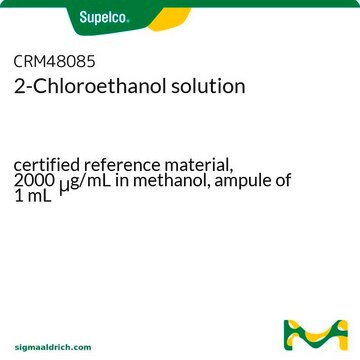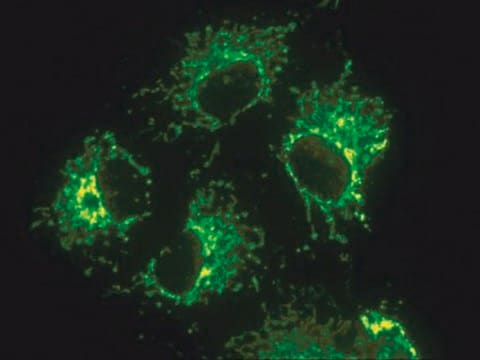09-1260
2-Chloroethanol
SAJ special grade, ≥99.0%
Synonym(s):
Ethylene chlorohydrin
About This Item
Recommended Products
grade
SAJ special grade
vapor density
2.78 (vs air)
vapor pressure
5 mmHg ( 20 °C)
Assay
≥99.0%
form
liquid
autoignition temp.
797 °F
expl. lim.
16 %
availability
available only in Japan
refractive index
n20/D 1.441 (lit.)
bp
129 °C (lit.)
mp
−89 °C (lit.)
density
1.201 g/mL at 25 °C (lit.)
SMILES string
OCCCl
InChI
1S/C2H5ClO/c3-1-2-4/h4H,1-2H2
InChI key
SZIFAVKTNFCBPC-UHFFFAOYSA-N
Looking for similar products? Visit Product Comparison Guide
Signal Word
Danger
Hazard Statements
Precautionary Statements
Hazard Classifications
Acute Tox. 1 Dermal - Acute Tox. 1 Inhalation - Acute Tox. 2 Oral - Aquatic Chronic 2 - Eye Dam. 1 - Flam. Liq. 3 - Met. Corr. 1
Storage Class Code
3 - Flammable liquids
WGK
WGK 3
Flash Point(F)
131.0 °F - closed cup
Flash Point(C)
55 °C - closed cup
Personal Protective Equipment
Certificates of Analysis (COA)
Search for Certificates of Analysis (COA) by entering the products Lot/Batch Number. Lot and Batch Numbers can be found on a product’s label following the words ‘Lot’ or ‘Batch’.
Already Own This Product?
Find documentation for the products that you have recently purchased in the Document Library.
Our team of scientists has experience in all areas of research including Life Science, Material Science, Chemical Synthesis, Chromatography, Analytical and many others.
Contact Technical Service












